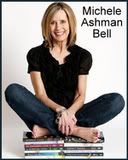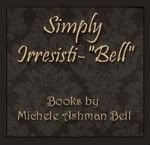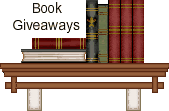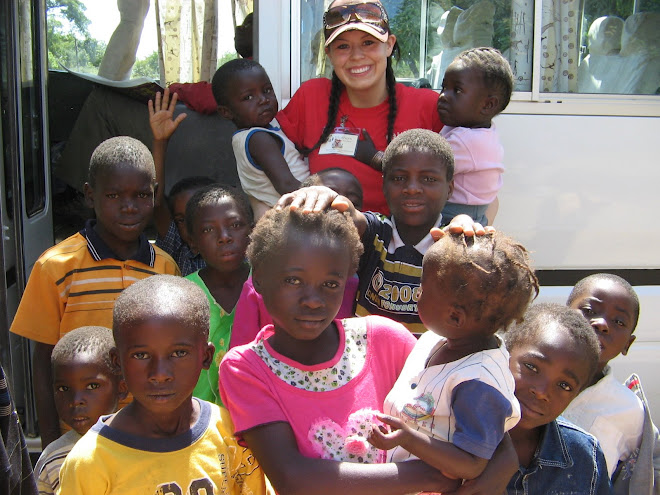
In December 1913, the city of Vienna glitters with promises of the future for sought- after debutante Amalia Faulhaber. But life takes a dramatic turn when simmering political unrest escalates into the most deadly war the world has ever known. Amalia is devastated when her fiance, Baron Eberhard von Waldburg, breaks off their engagement to return to his native Germany and obligatory military service. But she soon discovers that her passion for democracy in an increasingly fascist world has put everything she loves in danger. Her family torn apart and improvished by the war, Amalia must now choose between an idealistic young Polish doctor, who shares her political views, and the wealthy Baron von Schoenenburg, an Austrian Cabinet minister who promises to provide safety and security in a violent, tumultuous time. Reminiscent of Gone with the Wind, this epic novel explores the nature of human character and the elusive seach for love and peace.
The Last Waltz, is a stunningly written and researched and raises the bar in LDS historical fiction. GG Vandagriff's beautiful writing style and ability to make each page come to life, makes this book an experience to read. This book is at the top of my list of favorites.
I am so excited to have had the chance to interview GG and find out about more about this wonderful woman and incredible author.
Here's my interview:
M.B.: When did you first know you wanted to be an author?
AUTHOR:I had a very tumultuous, unhappy childhood and was pretty severely introverted. In order to cope, I invented fantasy worlds. They weren't about princesses or dragons, they were about ordinary people who had ordinary lives. The story wasn't as important as the alternate reality that I could lose myself in. My Aunt who was very creative (she was bi-polar like I turned out to be) started calling me an "authoress" when I was nine and was very encouraging. I wrote endlessly and she always listened to my stories and gave encouraging comments.
M.B.: What was the pathway like for you to get your first book published?
AUTHOR: I was very timid about my writing and feared rejection. As a consequence, I wrote for years on the same books (The Last Waltz which was just published was begun when I was 27. Another book, yet to be tried was The Only Bright Thing which I worked on for about 6 years). Finally, I took a class from the head of publishing at Andrews & McMeel. They published strictly non-fiction and for class we had to write a book proposal. The idea popped in my head to write about family history from the point of view of finding our true identity. I called it, Voices In Your Blood. My proposal really excited the publisher, and she asked me to submit it to her house. I did, was accepted, received an advance (they do that in the real world), and had an absolute ball writing and promoting that book. Concurrently, I was working on a "potato chip book"--a light mystery about two genealogists--Alex and Briggie. I got an agent immediately, first try. However, she was not a good agent and was not committed to selling my book. After seven rejections, she just said, "Write another mystery for me and we'll try again." My free lance editor who was really responsible for teaching me to write, said, "Make Alex a convert and send it to Deseret." This was in 1993 and no Mormon mysteries had been published, but I got almost instantaneous acceptances from both DB and Covenant. I decided to go with DB. They published two books in the series, but then I got very very ill and couldn't write anymore. Ten years later, after I was miraculously healed, I found an Alex and Briggie on my hard drive. I didn't even remember writing it. I called my editor at DB and she talked to the product director. They wanted it immediately. I demurred and said I thought it needed a lot of editing. That book became Tangled Roots and I was on my way.
M.B.: Were you ever discouraged along the way? If so, how did you deal with it?
AUTHOR: I battle discouragement because I never think what I write is any good. My standards are impossibly high because my ideal is Tolstoy! I also did try to market one of my other books nationally and met with nothing but rejection. That was really difficult. I also get discouraged because most publishers (non-LDS) want what I refuse to write. Even my Shadow Mountain national books are placed in the "Inspirational" section of the bookstore instead of where they belong. I deal with these setbacks by putting myself in the hands of the Lord. If I do the very best that I can do, I know that He will take me where I need to go. Instead of being frustrated, I need to be and try to be grateful that I've come this far.M.B.: What is your writing schedule like?AUTHOR:I start every morning at 8:00 and write until I can't go anymore (usually around 3 or 4. Then I take care of business for about an hour or so. At night, I just try to get my mind off my writing, because my subconscious needs to ferment. The only day I don't write is Sunday. However, all my kids are gone now, so I don't need to work around their schedules like I did for years.M.B.: Where did your idea come from for this book?AUTHOR: I lived in Austria when I was in college. I learned its 20th century history and thought it fascinating. No one in the states ever studies Austrian history. However, it has much to teach us. Before I was married, I also had a very complex love life,(drama queen) so I had no trouble getting my heroine in a mess. I plotted this book on the bus on the way to work when I was 27. I am now 61 and it is finally in print. (And I can safely say it is not a potato chip book)
M.B.: What words of advice do you have for other writers who desire tohave their manuscripts become books in print?
AUTHOR: Read Writing Down the Bones, by Natalie Goldberg, and follow her directions for daily writing exercises. Then choose a special friend or two or three who also like to write. Meet once a week, do writing exercises together, and share. (You can also do this on line) You will be absolutely amazed at how your writing will flower. It will come from the deepest part of you. Your "writing bones". It will not be superficial, but REAL. Once you have started a book, listen to what your characters tell you even if it means a massive rewrite. Real emotion and real characters are the keys to first class writing. I don't know this because I have arrived there yet, I just know it from reading my favorite authors. A new favorite is Marisa de los Santos--"Love Walked In."
M.B.: What is your process of brainstorming a story? Do you just sitdown and write, waiting to see what happens next? Or do you outlinefirst?
AUTHOR: It's different every time. The best ideas always come when I brainstorm with my husband. He is my co-creator in every way, though he will never take credit. I always have to start with something I love and am passionate about--a time period, a country, a place, a pursuit (genealogy). Then I have to get to know my characters really well. If I neglect this step, my writing has no life and I have to go back and explore every phase of my character's personalities--even things that don't go in the book. My mind is naturally devious, so even if I outline, my book comes out differently. I always learn something from my characters. To me they are very real.
M.B.: Do you ever experience a snag in a story, a form of writer'sblock? If so, how do you deal with it?
AUTHOR: I never get writer's block, but I do get exhausted. I know a scene is coming I don't have the energy to emote through. When that happens I go watch a movie or go out to lunch or take a nap. Coming back refreshed always works.
M.B.: Do you need absolute quiet to write? Do you listen to music whenyou are writing?AUTHOR:I do listen to music--mostly Celtic.
M.B.: What kinds of inspiration do you use during your story creation periods?
AUTHOR: I have to feed my mind with good stuff. I have to read the scriptures. I have to go to the temple. I have to pray ALOT. And I listen to a lot of Rachmaninoff if I'm writing an emotional scene.
M.B.: Who has made the greatest difference for you as a writer?
AUTHOR: My first editor really taught me to write. She inspired me by pulling the good bits out and telling me to showcase them. She taught me not to use a hackneyed phrase. She taught me to look DEEP and DEEPER inside myself for material. She was always encouraging. I couldn't have had a better teacher. Her name is Lavina Fielding Anderson. Some of you may know that she was excommunicated about 12 years ago. That was after I worked with her. Our differences are doctrinal, but she is still my friend and still cheers me on. (Even though I am about as conservative as you can get)
M.B.: Do you use a critique group during the writing process? Why or why not?
AUTHOR: My critique group is on the internet and goes from California to Washington, D.C. There are about five or six people that read all my manuscripts. My sister and my daughter, friends from Stanford, and new friends. They are all great.
M.B.: Anything about yourself that you would like readers to know about?
AUTHOR: I think I've said it all.
M.B.: Any final words you would like to share?
AUTHOR:Seek the best counsel and never give up.
M.B.: Where can our readers go to find your books and order them?
AUTHOR:My books are available at Seagull, Deseret Book (stores or on line), Barnes & Noble (for Shadow Mountain, which includes my latest book, The Last Waltz) on line or in stores, Amazon, or through my website ggvandagriff.com. They are all in print except for Voices In Your Blood which can usually be found on Amazon, Alibris, or e-bay.Please add any other information, like a brief bio or bookdescription, that you would like.See my website ggvandagriff.com for my biography and descriptions of all my books. My blog has reviews and descriptions of my latest: http://www.ggvandagriffblog.com/. Thanks, Michele for caring enough about our LDS writing community to do this!--




























































-page-001.jpg)














1 comment:
Great interview, Michele. GG's pretty awesome. I'm reading her book now:o)
Post a Comment